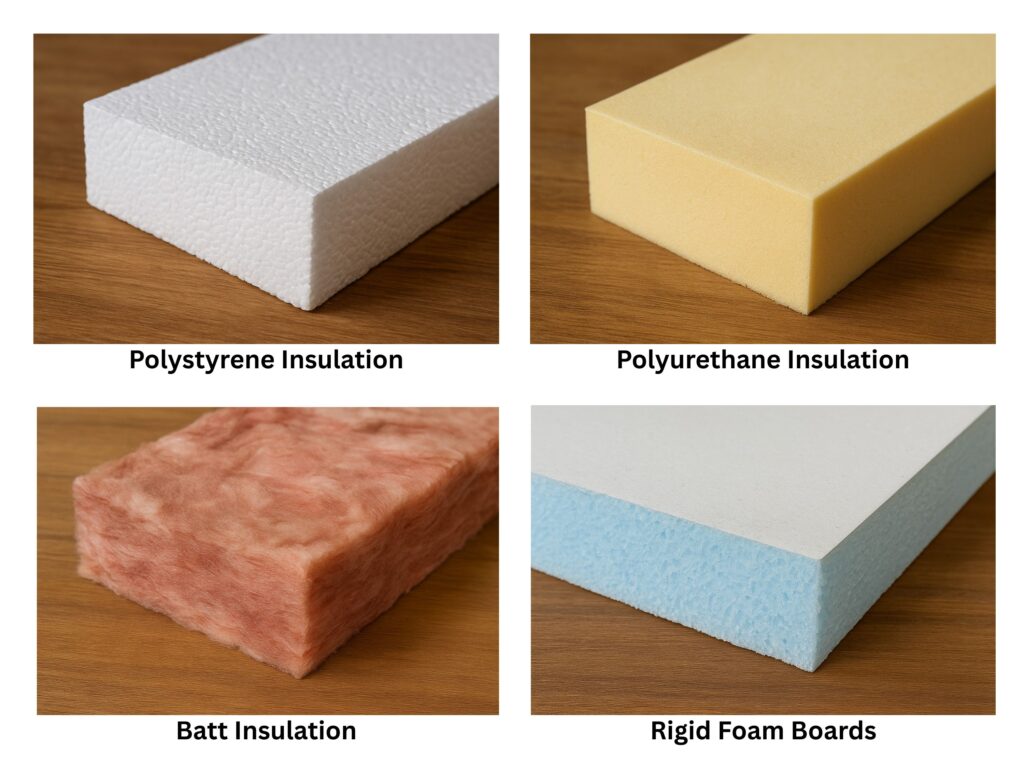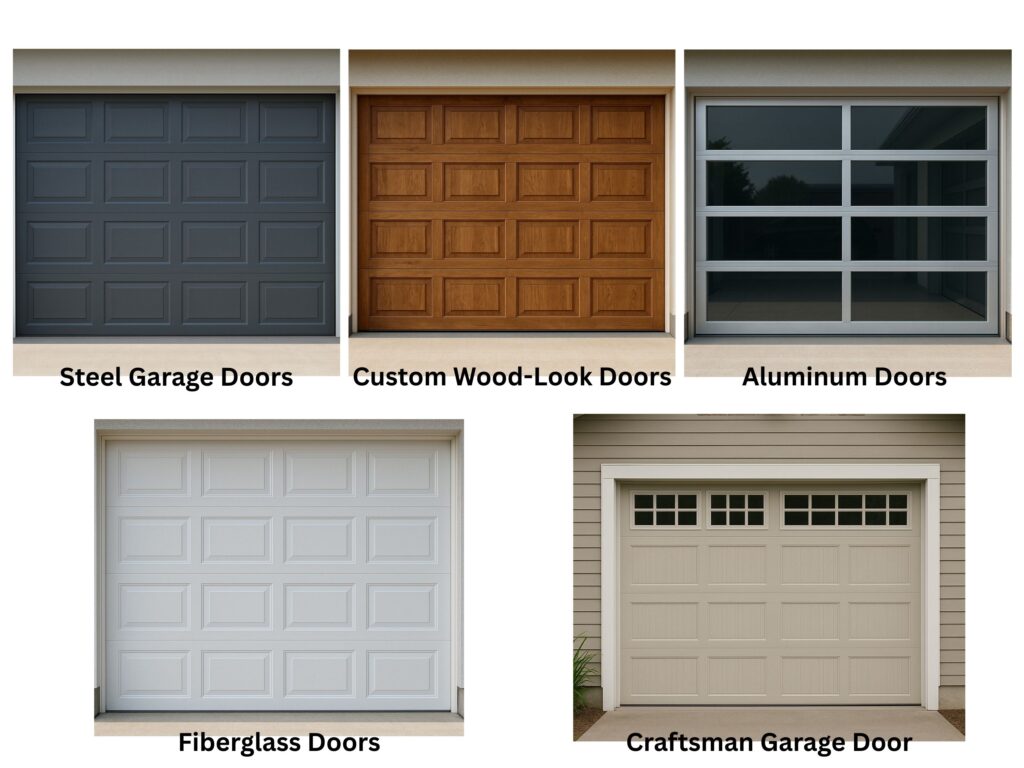Insulated Garage Doors: A Smart Move for Texas Energy-Conscious Homeowners

Not long ago, we received a call from a family near Sugar Land who complained that their garage felt like an oven in the summer and a freezer during the winter. Their air conditioner struggled to keep the house cool, and their energy bills were skyrocketing. After assessing their non-insulated garage door, we recommended a new insulated garage door with a polyurethane core and steel panels. Within weeks, they noticed a substantial improvement in comfort and a drop in monthly energy costs. It’s amazing what the right garage door can do for your home.
Here’s a fact to consider: An average garage can account for up to 25% of a home’s energy loss if it’s attached to the main house. In Texas, where extreme summer heat and unpredictable winter weather are the norm, this kind of energy transfer through a garage door can lead to hundreds of dollars in unnecessary utility bills each year. For energy-conscious homeowners, this isn’t just inconvenient, it’s costly.
That’s why more and more Texans are turning to insulated garage doors. These aren’t just about comfort, they’re about energy efficiency, durability, and smart long-term investment. At Colony Garage Doors, we’re proud to help homeowners make informed choices through this comprehensive guide.
What Is an Insulated Garage Door?
An insulated garage door is built with layers of insulation material, such as polyurethane or polystyrene, between durable outer layers made of steel, aluminum, or fiberglass. Unlike non-insulated doors that are often single-layer and hollow, insulated doors are multi-layer sectional doors that provide a barrier against temperature extremes and outdoor noise.
There are various insulation types used in garage doors:
- Polystyrene Insulation: Typically found in rigid foam panels that are inserted into the door. It provides a decent R-value and is relatively cost-effective.
- Polyurethane Insulation: A dense, spray-foam insulation that fills all spaces within the garage door panels, offering higher R-values, better heat insulation, and improved structural integrity.
- Batt Insulation: Usually made of fiberglass and rarely used in garage door manufacturing, though it can be applied in DIY retrofits.
- Rigid Foam Boards: Often used in insulation kits, this insulating material can be installed on existing doors, though not as effective as factory-insulated models.

The R-value of a garage door measures its ability to resist heat flow; the higher the R-value, the better the insulation. Some high-end garage doors like Amarr Garage Doors, Clopay Garage Doors, and Martin Garage Doors offer R-values exceeding 18, an excellent option for homeowners looking for maximum thermal protection.
Why Texas Homes Need Insulated Garage Doors
In Texas, the weather isn’t just hot, it’s extreme. Your garage door is often the largest and most-used entry point to your home. With no insulation, it becomes a major source of thermal transfer, allowing hot air to seep inside during the summer and warm air to escape in winter.
Without proper insulation, your garage space may reach temperatures well over 100°F, which can damage your car’s electronics, tools, stored items, or even your garage door opener’s logic board and light socket. In the winter months, cold drafts reduce comfort and increase reliance on heating systems. In both scenarios, your energy bills take the hit.
By investing in an insulated door, you’re adding a layer of protection that not only regulates the temperature of your garage but also reduces energy loss and increases the energy efficiency of your entire home.
Key Benefits of Insulated Garage Doors
1. Enhanced Energy Efficiency and Lower Energy Bills
An insulated garage door serves as a barrier against outdoor temperatures, helping your home retain comfortable indoor temperatures with less energy usage. For Texas homeowners, where air conditioning is essential, this can mean significant savings on monthly utility bills. Many experience up to 20% savings, especially in newer homes with attached garages.
2. More Comfortable Garage Space
Your garage isn’t just for parking your car it can double as a gym, workshop, or even a playroom. Insulated garage doors maintain a more consistent temperature in this space, making it usable year-round. You’ll no longer dread walking into a sweltering or freezing garage.
3. Noise Reduction
Multi-layer construction and thick insulation materials help reduce outside noise, making insulated doors ideal for homes near busy roads or for homeowners who use the garage as a living space. Noise reduction also helps when operating the garage door opener, resulting in quieter opens and closes.
4. Improved Durability and Door Strength
Insulated doors are stronger and more impact-resistant than non-insulated doors. The extra layers (like urethane or foam) reinforce the structure, making it less likely to dent or warp over time. This added strength is perfect for standing up to Texas storms, heavy winds, and the general wear and tear of daily use.
5. Increased Property Value
A new garage door, especially an insulated one, adds to your home’s curb appeal and increases resale value. Energy-efficient upgrades are highly attractive to prospective buyers and could offer a high return on investment.
Types of Insulated Garage Doors and Materials
Choosing the right insulated garage door depends on your needs and budget. Here’s a breakdown of door types and insulation materials:
|
Door Type |
Insulation Material |
Key Feature |
|
Steel Sectional Doors |
Polyurethane |
Highest R-value, best structural strength |
|
Aluminum Doors |
Polystyrene |
Lightweight, moderate insulation |
|
Fiberglass Doors |
Polyurethane |
Resistant to rust and weather |
|
Craftsman Garage Door |
Polystyrene |
Stylish, great for traditional homes |
|
Custom Wood-Look Doors |
Polystyrene or None |
Stylish, may lack insulation unless upgraded |

Each material offers different insulation performance, with steel and polyurethane being the best combination for energy efficiency and durability.
Retrofitting Existing Doors with Insulation Kits
If replacing your door isn’t in the budget right now, you can consider door insulation kits. These are typically foam panels, rigid boards, or Styrofoam inserts that attach to your current door. Brands like Chamberlain Garage Door and others offer garage door guides and step-by-step kits for DIY upgrades.
While insulation kits can help, they don’t match the efficiency, durability, or R-values of factory-built insulated garage doors. Also, DIY insulation may add weight to your door, requiring adjustments to your garage door opener and spring system.
Commercial Applications of Insulated Garage Doors
Insulation isn’t just for homes. Businesses with car garage doors, warehouses, or commercial delivery spaces in Texas can benefit from insulated doors as well. Regulating the indoor temperature in these spaces reduces HVAC costs, improves employee comfort, and protects inventory.
High-end commercial sectional doors come with thick foam insulation, stronger weather seals, and customized options for daily heavy-duty use.
Pros and Cons of Insulated Garage Doors
✔ Pros:
- Improved energy efficiency and comfort
- Quieter operation
- Stronger and more durable
- Adds value to your home
- Helps protect your belongings and vehicles
✘ Cons:
- The initial cost may be higher
- Retrofitting older openers or tracks may be required
- Not all insulation types offer the same performance
Still, the long-term energy savings, durability, and overall comfort often far outweigh the initial investment.
Frequently Asked Questions (FAQs)
Q: What is the best insulation type for garage doors?
A: Polyurethane insulation offers the highest R-values, best strength, and noise reduction, making it ideal for Texas weather conditions.
Q: Can I insulate my current garage door myself?
A: Yes, with an insulation kit, but results will vary. For optimal results and long-term value, a new insulated garage door is recommended.
Q: What’s the typical R-value I should look for?
A: Look for R-values of 12 to 18 or more, depending on how you use your garage and how extreme your local temperatures are.
Q: Do insulated doors need special maintenance?
A: They need the same care as any garage door, but it’s important to check the seals, panels, and openers regularly to maintain performance.
How Can Colony Garage Doors Help You?
At Colony Garage Doors, we help Texas homeowners make the most of their space with insulated garage doors built to withstand the unique challenges of our state’s climate. Whether you’re building a new home, upgrading an old door, or simply looking for ways to reduce your energy bills, we offer professional garage door installation, repairs, and expert advice.
From steel sectional doors with polyurethane insulation to stylish craftsman garage doors, we carry a wide range of energy-efficient products from leading brands like Amarr, Clopay, and Martin.
📍 Visit Us: Farm to Market 1093, 16535 Southwest Fwy, Sugar Land, TX 77479
📞 Call Now: (832) 345-9267
Get a free consultation today and learn how an insulated garage door can make your home more comfortable, efficient, and valuable. Choose Colony Garage Doors, your trusted local expert for all things garage!
Energy savings, comfort, and peace of mind all start with the right garage door.
